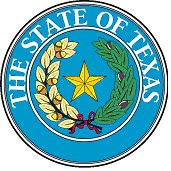The first thing you are going to need, as a Texan Prepper, is the right mindset, and you probably already have it. Think about it. Do you walk down unlit alleyways? How about letting your little child ride without a car seat? Leave your home unlocked? Leave a burning candle, unattended? Hopefully, the answers to all of those questions are NO.
Mindset
No, to walking in alleyways because you know danger can lurk in dimly lit alleys. No, to letting your small children ride without car seats because you know, in a crash, small kids get thrown around a car wearing regular seatbelts. No, to leaving your home unlocked because you know most criminals go for easy pickings.
And that’s the thing about mindset; you don’t put yourself and your family in danger because prepping is about avoiding disaster.
Now, most people follow this, but being a Texan Prepper requires a slightly different mindset. The first difference is a healthy dose of paranoia.
A healthy dose of paranoia means that you understand that folks (that includes neighbors) may steal your preps before, during, and after a disaster.
Think about it.
If you get really prepared, you will have thousands of dollars invested in food, equipment, and other stuff that your family will need during a disaster. This is stuff that criminals look to steal, everyday. So, be cautious about what you say or tell your neighbors your preps.
Now, if you start thinking that these
The second difference that you’re going to need to know is your limitations. Yes, just like Harry Callahan (Clint Eastwood) said in Magnum Force “A man's got to know his limitations.” This includes you too womenfolk.
As much as you would like, you don’t have unlimited time, money, and other resources to get prepared. This includes famous Texans like Michael Dell, Alice Walton, T. Pickens, and Gerald Ford. Just like you, they have to prioritize what they are going to accomplish.
The last thing about mindset you’re going to need, as a Texan Prepper, is to understand that most disasters have common solutions.
During a hurricane, you’re going to need shelter, water, food, personal protection, and medical attention. Lost in the woods, you’re going to need shelter, water, and maybe medical attention. Same with sectarian violence and many other disasters, the list is the same just the priorities are different.
Threat Analysis
The first thing you need to do as a Texas Preppers is to make a list of all of the bad stuff that could happen to you and your family. One-way to do this is to take a piece of paper and draw a line down the middle of the paper long-ways. On the left hand side of the line, you list all of the bad things that could happen to you and your family. Things such as drought, laid-off, fire, divorce, car accident, drowning, hurricane, chemical spill... keep listing. When you run out of disasters, ask your partner to help.
Remember, this list is in no particular order. Just keep listing.
Once, you’re finished; add the disasters you think you and your family need to prepare for. These are the disasters that might wake you in the middle of the night like a zombie’s apocalypse, nuclear war, or losing all of your money in a stock market collapse.
Once you have listed all of the disasters that could happen to you and your family on the right hand side of the paper, prioritize the disasters from most likely to happen to least likely to happen. Once you have your threat analysis done, you’re ready to start getting prepared.
Someone You Know
(http://www.gsiep.blogspot.com)
Note from RW: Post was edited for clarity.












